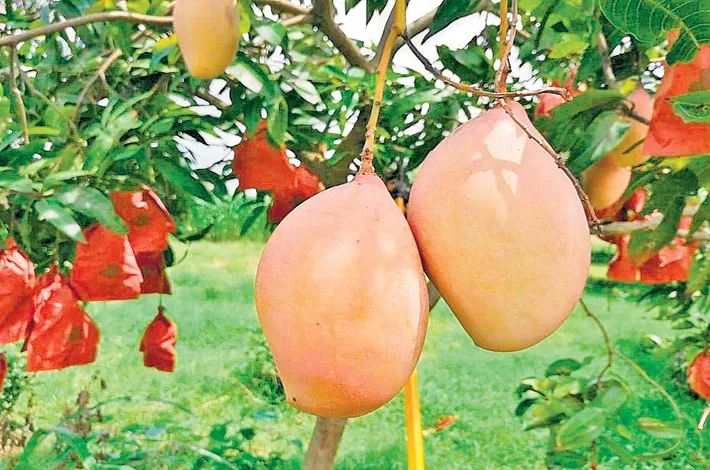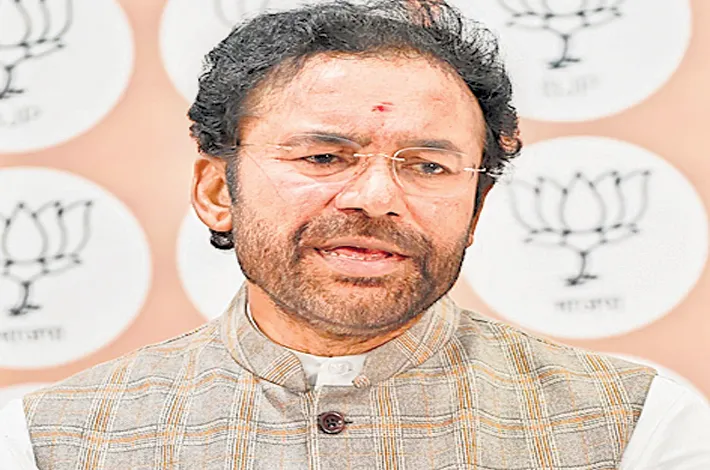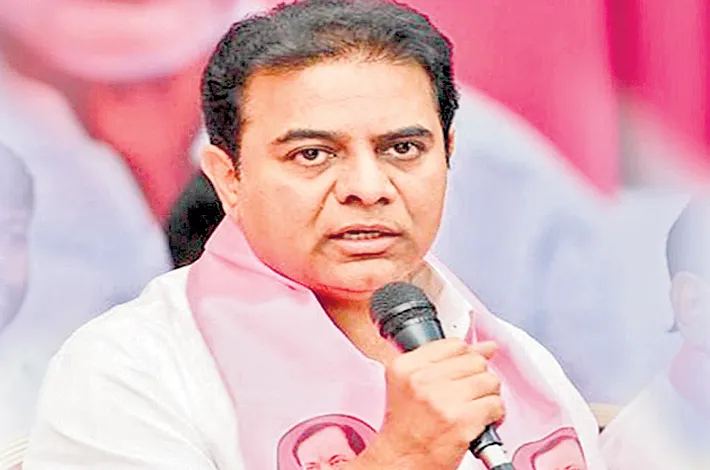20 lakh mango covers sought by mango cultivators
08-03-2025 12:00:00 AM

A steep rise from the 9 lakh covers distributed last year
NTR District rules the roost
■ 68,000 hectares under mango cultivation in NTR district
■ Horticulture Dept distributed 20 lakh mango covers this year
■ The government has provided the covers at a 50 percent subsidy
■ Over 1,000 hectares of mango cultivation in the district use protective covers
kiranmai tutika I hyderabad
The Horticulture Department of NTR district has been going ahead with a successful initiative and innovative approach to mango cultivation, distributing cosmetic mango fruit covers to protect the fruit from pests, insects, and environmental damage. The initiative, aimed at improving both quality and market value, has seen an overwhelming response from farmers, with the demand for these covers almost tripling compared to the previous year.
Mango farming is a major agricultural activity in NTR district, spanning approximately 68,000 hectares, with thousands of farmers cultivating the fruit each season. In a bid to enhance mango yield and quality, the Horticulture Department launched a pilot program last year, introducing these protective covers. Encouraged by positive results, the department has significantly scaled up its efforts in 2024.
“This year, we have already provided 20 lakh mango covers, a steep rise from the 9 lakh covers distributed last year,” said Dayakar Babu, Assistant Director of the Horticulture Department, speaking to Metro India. “The response from farmers has been remarkable, and we are seeing increased demand. These covers offer multiple benefits, including protection from pests, a reduction in pesticide use, and improved fruit retention during heavy winds.”
Currently, over 1,000 hectares of mango plantations in the district are utilizing these protective covers. The government has provided the covers at a 50% subsidy, reducing the cost per cover from Rs 2 to just Rs 1 for farmers. A tree with 100 mangoes requires an investment of only Rs 100 for the covers, making it an affordable yet highly beneficial investment.
Farmers who adopted this technique last year witnessed a substantial difference in their earnings. Without protective covers, Banginapalli (Benisha) mangoes were sold at Rs 35,000 to Rs 40,000 per ton, whereas mangoes grown with covers fetched Rs 60,000 to Rs 70,000 per ton—a nearly 75% increase in value. This significant price difference has driven up demand for the covers this season, prompting the government to allocate an additional 10 lakh covers, taking the total availability to 30 lakh.
According to horticulture officials, the advantages of using these covers extend beyond immediate financial gains. “The fruit grows 20% larger when protected by the covers, remains firm for a longer duration, and faces less damage during harvesting and transportation,” Babu explained. He further emphasized that the initiative aligns with the department’s focus on pesticide-free organic farming, making the mangoes more suitable for export markets.
“Farmers using organic fertilizers not only reduce their cultivation costs but also improve the overall quality of their yield,” he added. “For exports, high-quality produce is crucial. By using organic methods and protective covers, we can enhance the export potential of mangoes from NTR district.”








